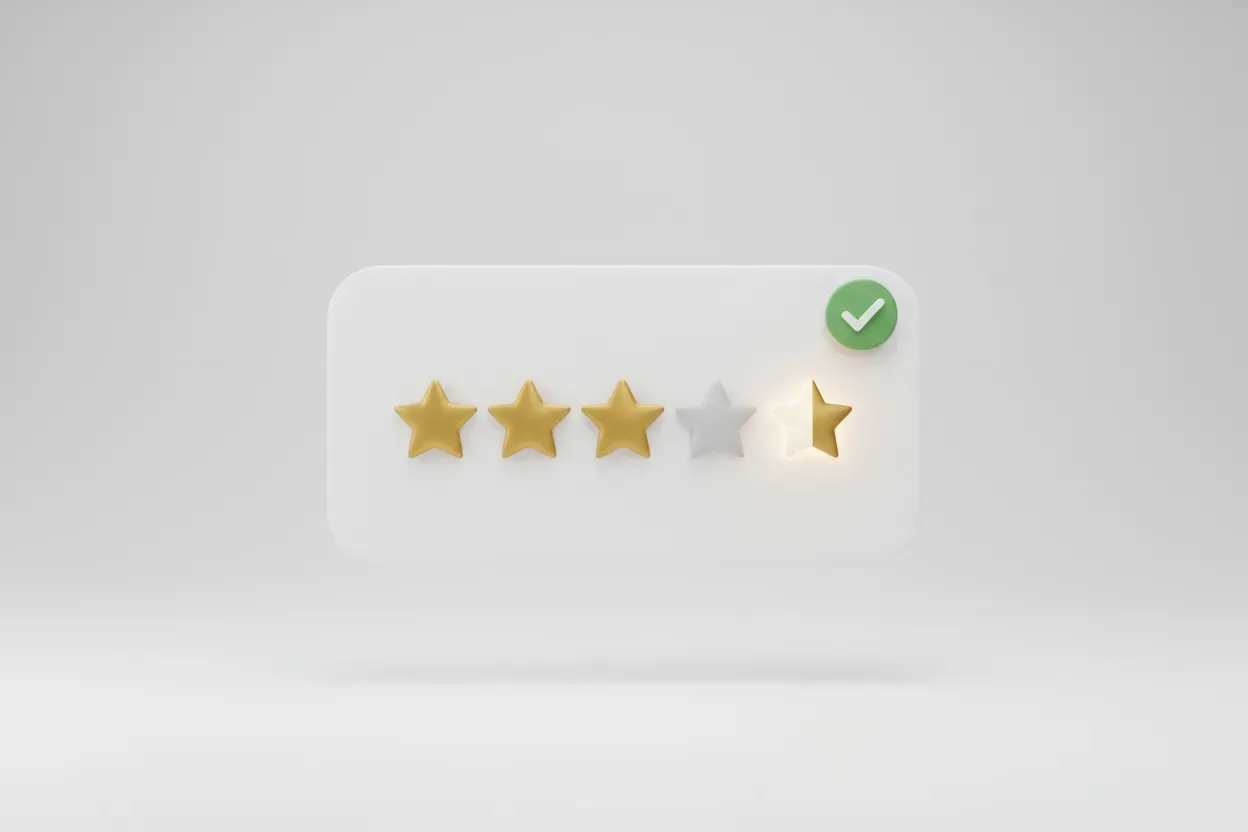What Experts Wish They Knew Earlier About Finances
Discover the financial wisdom that experts wish they had known earlier in their careers. This article presents key insights from seasoned professionals, covering essential topics from compound interest to smart budgeting. By learning from their experiences, readers can make informed decisions to improve their financial health and future prospects.
- Harness the Power of Compound Interest Early
- Diversify Assets for Long-Term Wealth Preservation
- Prioritize Savings Before Indulging in Purchases
- Leverage Technology for Smarter Financial Management
- Master Budgeting and Expense Tracking Skills
- Align Financial Strategy with Mindset Work
- Start Investing Early for Long-Term Success
- Plan Budget with Intention and Save First
- Practice Delayed Gratification and Smart Spending
Harness the Power of Compound Interest Early
One thing I wish I had known earlier about financial management is the power of compound interest and starting to save and invest at a young age. Even modest amounts invested consistently over time can grow substantially due to compounding. For example, if you invested $5,000 at age 25 and earned a 7% annual return, it would be worth over $80,000 by age 65. However, if you waited until age 35 to start investing, that same $5,000 would only grow to around $38,000. This principle highlights the immense value of developing good financial habits early on and letting time work its magic.
 Mahee Chouhan
Mahee Chouhan
Content and Digital Marketing Manager, Mitt Arv
Diversify Assets for Long-Term Wealth Preservation
Earlier in life, I wish I had understood that preserving wealth requires more than just saving. Saving money does hold value, lots of it. However, I didn’t understand that when the economy faces challenges, there are assets that hold better value if I were to invest some of my money into them. I wish I had a mindset that was more strategic and patient when I was younger with my financial choices.
Changing my mindset earlier in life would have helped me start making better investment choices sooner. Personally, I would have started allocating into tangible assets like precious metals to aid in sustainable growth. As I became older and more educated, my mindset changed. I am grateful for the lessons I have learned. Today, my more recent choices have led to stability, wealth building, and show resilience against market downturns.
 Peter Reagan
Peter Reagan
Financial Market Strategist, Birch Gold Group
Prioritize Savings Before Indulging in Purchases
In our line of work, where we are finding gifts and new trends, it’s easy to get caught up in spending. That’s why I make a budget each month and stay mindful of my priorities. I maintain simplicity in my personal life to enjoy small moments without feeling financial remorse.
I always pay myself first. Savings go out before any shopping happens. I also avoid big purchases unless I really need them. I’m one of those who believe smart planning today brings joy and freedom tomorrow.
 Danilo Miranda
Danilo Miranda
Managing Director, Presenteverso
Leverage Technology for Smarter Financial Management
One aspect I wish I had known earlier about finance management is the importance of leveraging technology to automate and optimize financial processes. As a professional in computer science and web development, I now recognize how tools like software algorithms and web applications can simplify expense tracking, budgeting, and even investment strategies. Implementing these solutions earlier could have provided greater transparency and control over my financial decisions, ensuring smarter savings and healthier financial growth over time.
 Robbert Bink
Robbert Bink
Founder, Crypto Recovers
Master Budgeting and Expense Tracking Skills
If there’s one lesson I wish I had learned sooner, it’s the value of budgeting and keeping track of expenses. While it may seem like a straightforward concept, mastering it can significantly shape and elevate your financial journey.
Budgeting allows individuals to clearly see where their money is going and how much they should be spending in each category. By having a set budget, it helps to prioritize expenses and make sure that money is being allocated towards necessary items first. This helps to avoid overspending and accumulating unnecessary debt.
Tracking expenses also plays a crucial role in managing finances. Many people underestimate how much they spend on certain items, such as dining out or entertainment. By keeping track of these expenses, individuals can identify areas where they may be overspending and make adjustments to their budget accordingly.
In addition to budgeting and expense tracking, it is important to have a savings plan in place. This can include setting aside a certain percentage of income each month or creating an emergency fund for unexpected expenses. Saving money not only provides financial security but also allows individuals to reach their long-term goals, such as buying a house or retiring comfortably.
 Patrick McDermott
Patrick McDermott
Executive Vice President, Max Cash
Align Financial Strategy with Mindset Work
I wish someone had told me that simply earning more money doesn’t guarantee a sense of financial security.
I believed that increasing my income would solve all my problems. However, I’ve learned that if your nervous system doesn’t feel safe holding money, you’ll find ways to spend it, sabotage it, or stress about it regardless of how much you have.
What I truly needed was to understand that finance and mindset are inextricably linked.
You can’t separate the numbers from your beliefs.
You need both the spreadsheet and self-awareness.
If I had known earlier that nervous system regulation, healing money-related stories, and emotional safety are just as crucial as financial strategy, I would have made decisions from a place of alignment rather than panic.
Now, I teach this to my clients:
We don’t just discuss profit and expenses — we explore patterns, triggers, and how their bodies react when they check their bank accounts.
Because there is no financial success without mindset work.
And safety must precede strategy.
 Cindy Kumar
Cindy Kumar
CEO, CPA, Fractional CFO, Elevated Accounting
Start Investing Early for Long-Term Success
“The best time to start investing was yesterday; the second-best time is today. It’s the power of time, not just money, that makes the difference.”
When I look back on life, one thing I wish I had known earlier was the importance of starting early with investing. I didn’t realize the power of compounding, and how time is the most crucial element instead of money when it comes to long-term wealth building. If only I had started contributing small amounts by the age of 20, it would have significantly increased my financial security while opening even more opportunities down the road.
If I had known the importance of developing a diversified portfolio and sticking to it earlier on in my life, I could have escaped many common pitfalls like chasing high returns or reacting to short-term market fluctuations. The lesson here is that time, discipline, and patience are some of the best assets you can have in your toolkit. Starting earlier with a plan is not only about having a lot of money later; it’s about having the freedom and peace of mind to make the most of life today.
 Harold Wenger Jr.
Harold Wenger Jr.
Partner, Wealth Manager, Kingsview Partner
Plan Budget with Intention and Save First
Financial wellness is a lot like health in the sense that it takes discipline and balance. I start by planning my budget with intention, focusing on needs first. That might mean skipping luxuries today to build the future I want tomorrow.
I also save first and spend what’s left, not the other way around. My savings go into fixed deposits. These are simple, low-risk, and perfect for long-term goals. That peace of mind helps me stay focused on growing Bloom without financial anxiety clouding my decisions.
 Alexei Schaller
Alexei Schaller
Founder & CEO, Bloom
Practice Delayed Gratification and Smart Spending
I wish I had understood the power of delayed gratification and intentional budgeting earlier. In my early journey, I often equated financial growth with more revenue, not smarter spending. If I had focused on managing inflow and outflow better, especially by reinvesting wisely rather than reacting emotionally, I could have accelerated growth more sustainably.
This mindset shift now shapes how we manage finances at Kalam Kagaz. Every rupee is a resource, not just a number. Knowing this earlier would have saved time, stress, and opened up more calculated opportunities.
 Kritika Kanodia
Kritika Kanodia
CEO, Kalam Kagaz







































